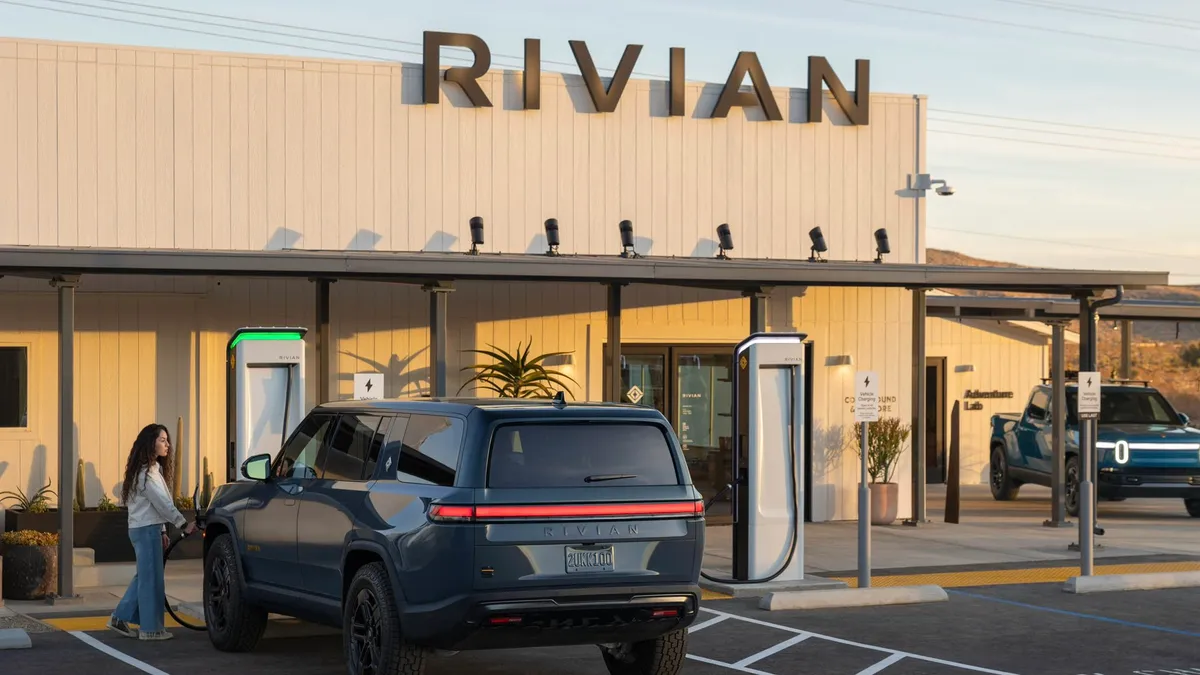Dive Brief:
- General Motors is abandoning its plan to build 400,000 electric vehicles from 2022 through mid-2024 to maximize profitability, GM executives said during the company’s earnings call Tuesday.
- The automaker produced approximately 32,000 EVs during Q3 2023, a 40% increase over Q2, and plans to increase production further in Q4 2023 and beyond. GM’s EV sales grew 28% quarter over quarter.
- GM blamed lower EV demand for its decision to curb its EV production goals, but the automaker still plans to have the capacity to build 1 million EVs annually in North America by the end of 2025.
Dive Insight:
GM, along with Ford, is slowing its EV plans as demand softens, competition heats up and prices drop. Last week, GM said it would delay the production start of electric trucks, including the Chevy Silverado EV and GMC Sierra EV, from 2024 until late 2025 at its Orion Assembly plant in Michigan.
“We're also taking immediate steps to enhance the profitability of our EV portfolio and adjust to slowing near-term growth," GM CEO Mary Barra said Tuesday. “These steps include moderating the pace of our EV acceleration in 2024 and 2025.”
GM is delaying the launch of several EV models to cut expenses, Barra said. The Chevrolet Bolt EV, for instance, is being relaunched using lower-cost lithium-ion batteries purchased from China, allowing GM to go to market “two years faster,” Barra said.
The company expects the Cadillac Lyriq, Chevrolet Blazer EV, Chevrolet Silverado EV and GMC Hummer EV will comprise two-thirds of its EV production in Q4.
GM will also delay the production of the Chevrolet Equinox EV, Silverado EV RST and GMC Sierra EV Denali “by only a few months” to give the automaker more time to develop software for them, Barra said.
“This will ensure their success,” she said.
GM also said it’s ramping up EV battery production at its Ultium Cells factory, a joint venture with LG Energy Solutions, in Ohio. The company says it more than doubled Ultium platform production in the third quarter and expects the plant to reach its full capacity of 36 million cells a year by the end of 2023. GM said new high-capacity module assembly lines led to the production increase.
“By mid-year, we expect that modules will no longer be a constraint and we will be focused on building to customer demand rather than setting new production targets,” Barra said.
GM CFO Paul Jacobson said the United Auto Workers strike against the automaker cost it $200 million in Q3 earnings before interest and taxes and $600 million to date in Q4, bringing the total to $800 million since the strike began Sept. 15.












